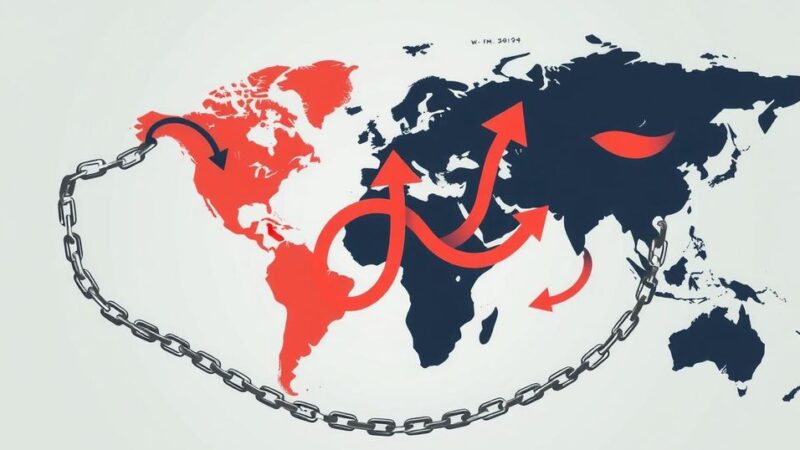The Biden administration has given Israel a 30-day ultimatum to improve humanitarian conditions in Gaza, prompting criticism from analysts who view it as a political maneuver intended to evade accountability during the electoral period. The letter outlines specific aid requirements and denies forced civilian evacuations, yet skepticism remains about the U.S. government’s commitment to enforcing compliance with these demands.
The Biden administration has issued a formal ultimatum to Israel to address urgent humanitarian concerns in Gaza, allowing a period of 30 days for the Israeli government to take meaningful action. In a letter dated October 13, Secretary of State Antony Blinken and Secretary of Defense Lloyd Austin expressed the United States’ deep anxiety regarding the escalating humanitarian crisis. They emphasized the necessity for immediate and sustained efforts from the Israeli authorities to alleviate the dire situation in Gaza. Despite this call for action, various critics have labeled the ultimatum as a politically motivated maneuver, insinuating that it is timed conveniently to coincide with upcoming elections. Daniel Levy, president of the U.S./Middle East Project, described the blatant cynicism of establishing a 30-day window, which notably extends beyond the election date. During a panel discussion hosted by the Quincy Institute, he remarked, “I don’t know whether I’m terribly naive, I still have the capacity to be shocked, but the degree of cynicism required to set a 30 day limit … which coincidentally, gets you past the election date.” The ultimatum details that Israel must ensure a minimum of 350 aid trucks per day enter Gaza and that it must not classify essential humanitarian supplies as “dual use” items to hinder their delivery. Furthermore, the letter explicitly states that there should be no forced evacuation of civilians from northern to southern Gaza. Critics have expressed skepticism regarding the sincerity of the Biden administration’s ultimatum, questioning whether it will lead to tangible actions considering the urgency for humanitarian aid amidst ongoing atrocities. Former UK diplomat Ian Proud criticized the U.S. announcement on social media, stating, “The U.S. giving Israel 30 days to allow humanitarian aid into Gaza or face cuts in weapon shipments is the most dishonest and morally bankrupt announcement I’ve seen for a long time.” Dr. Annelle Sheline, a Middle East fellow at the Quincy Institute, stated that the letter represents a clear acknowledgment by the Biden administration of Israel’s non-compliance with U.S. military assistance laws.
The humanitarian crisis in Gaza has escalated significantly due to ongoing conflict. The United States traditionally provides military aid to Israel, yet there are growing concerns regarding the impact of such support on the humanitarian situation in Gaza. The Biden administration’s latest ultimatum aims to address these concerns, but critics argue that it may be a strategic political message rather than a genuine initiative to alleviate the suffering in the region.
The recent ultimatum issued by the Biden administration to Israel regarding the humanitarian crisis in Gaza has been met with substantial criticism, perceived as a politically motivated act that potentially aims to sidestep accountability until after election season. Experts have highlighted the need for immediate and enforced action, raising concerns over the sincerity of the U.S. commitment to humanitarian assistance in light of ongoing violence. The letter from U.S. officials underscores the complexities of U.S.-Israel relations amidst pressing humanitarian needs.
Original Source: responsiblestatecraft.org







